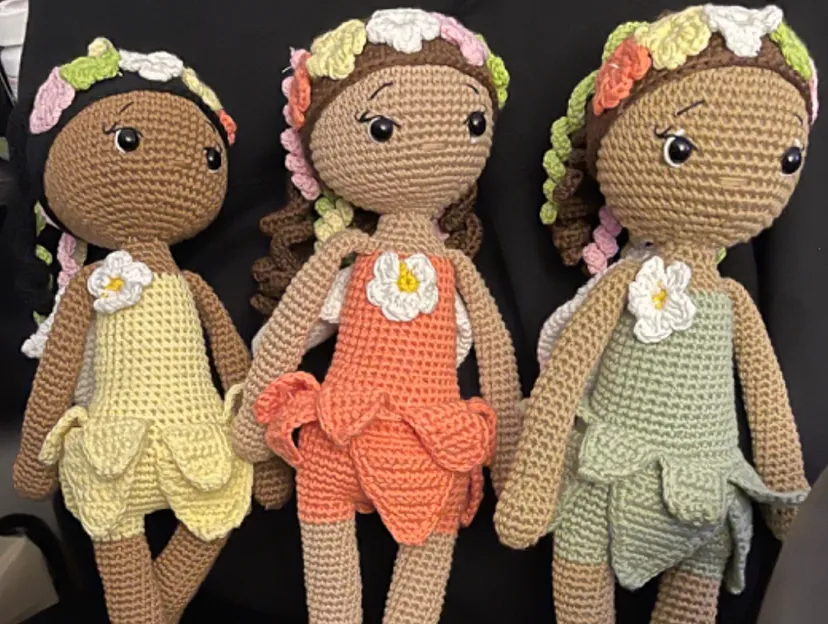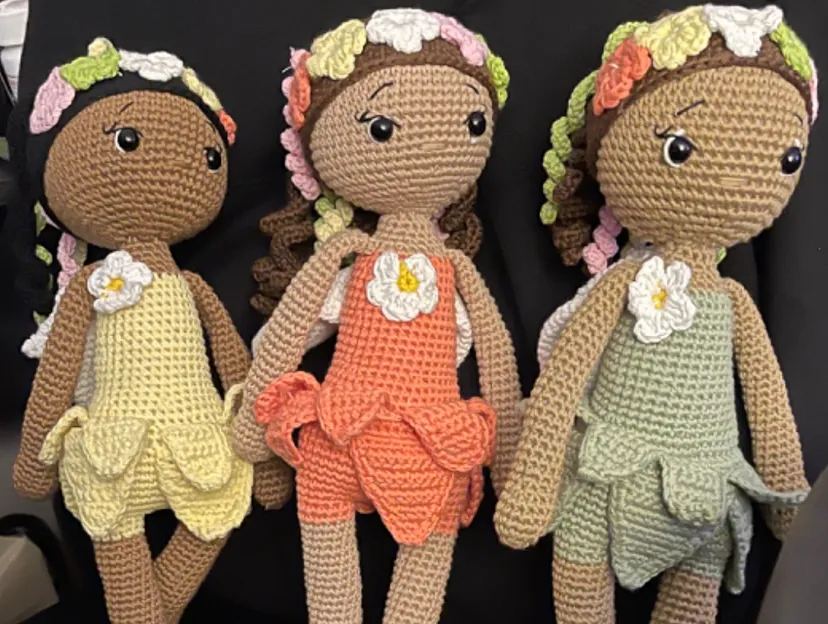
Image via Ikuzi Fairy Dolls
The story of the BRATZ doll is revolutionary. When the BRATZ crew came onto the market in 2001, their launch shook the doll market with subversiveness, self-possession, and a sense of fashion that was always on point. But even more revolutionary was that for 22 years, BRATZ modeled a phenotypically diverse and empowering alternative to Barbie’s historic white-centric standards of beauty and womanhood. Within four years of BRATZ appearing on the market, BRATZ made over $1 billion in sales. A year later, in 2006, BRATZ held an estimated 40% of the market share.
That said, the doll hasn’t been without its fair share of controversies. The latest one surrounds the Kylie Jenner BRATZ doll collection’s launch- the first celebrity BRATZ to ever be released. With this release comes a backlash towards the choice of celebrity and the doll itself.
“Giving Kylie (a white woman who modeled her face/body around Black women) her own Bratz doll (which is an arguably more Urban/Black presenting doll) before an ACTUAL Black woman is… weird.”
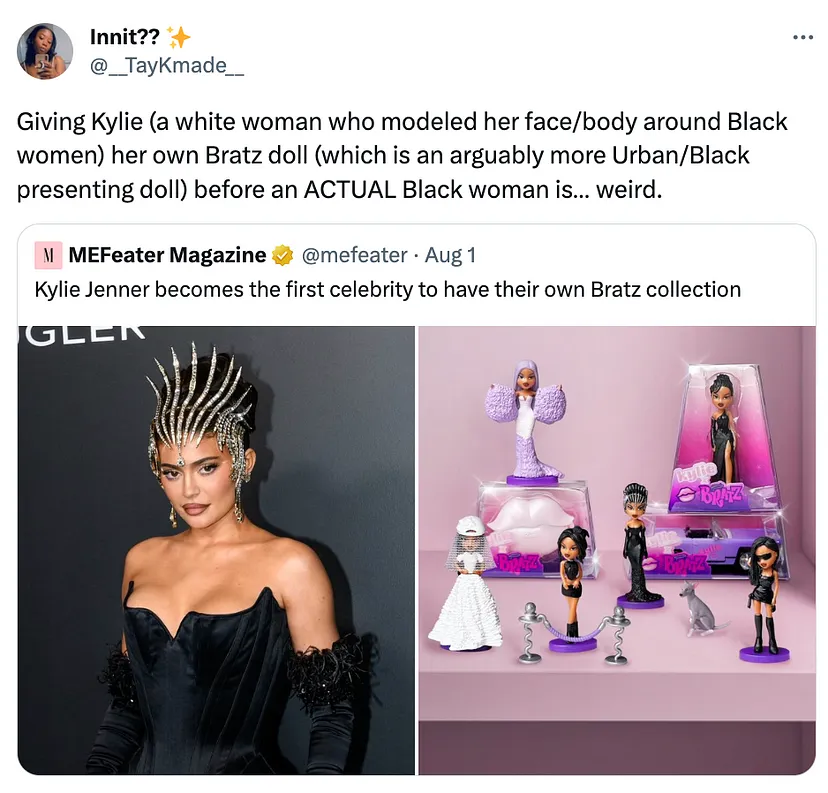
Image via twitter
The commentary around the new line, however, doesn’t just end at the long-discussed examination of how the Kardashians have used Black girl aesthetics for personal profit. The dolls themselves have a strikingly darker skin tone than the youngest Jenner.
“I love Bratz so much since a child but for the first celebrity collab to be with a yt woman is kinda scary. Kylie is not that damn dark and those features aren’t hers idk”
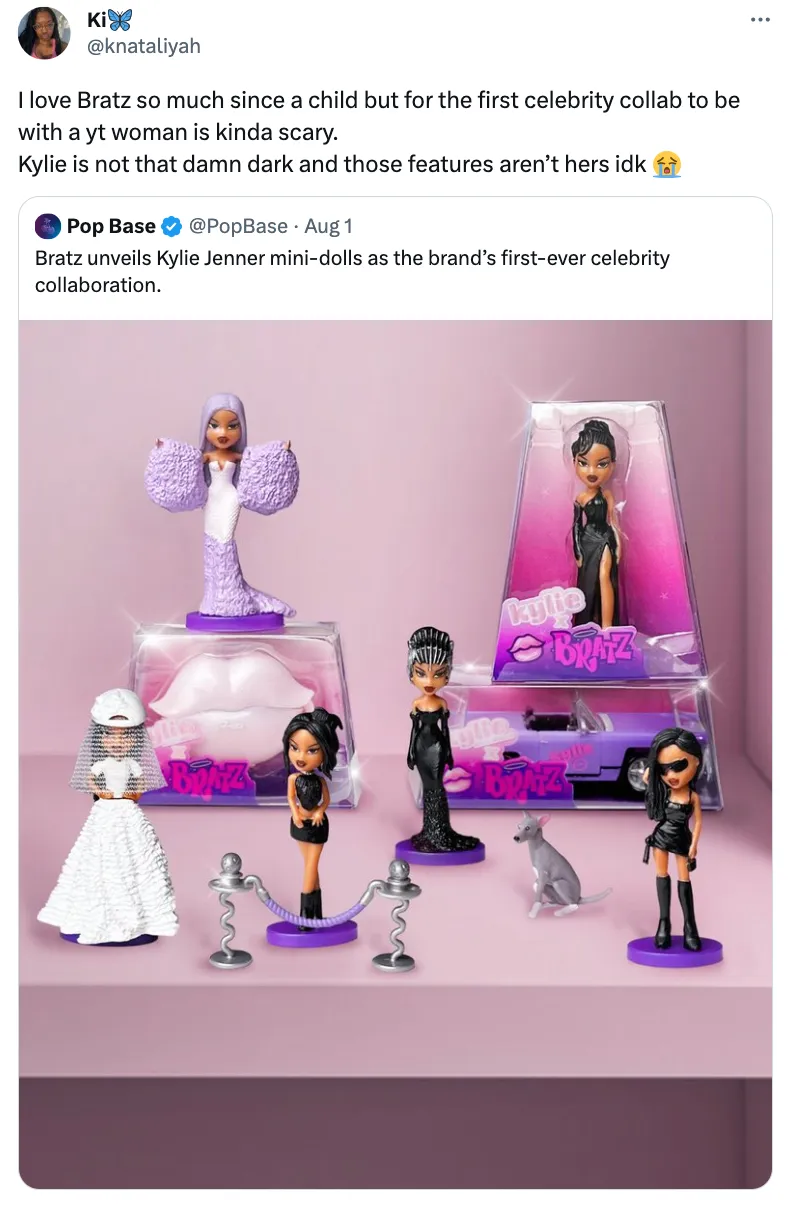
Image via twitter
A third tweet read, “It frustrates me because we already have an issue with colorism and @Bratz made Kylie dark asf. That’s just so wrong.”

Image via twitter
digitalundivided Community Partnerships Director Patricia Diaz notes the timing of the BRATZ celebrity launch appears strategically placed to capitalize on this summer’s women-led tour-de-force economy, in which billions of dollars from Beyonce, Taylor Swift and, of course, the Barbie movie are boosting the U.S. economy. But in the case of the BRATZ and Kylie Jenner collab, Diaz notes the brand may have missed the intersectional mark:
“Parents want to ensure their children understand there is another representation out there besides our white counterparts and are conscious of what they are bringing into their home, who they are, and what they look like. It will be interesting to see how the sales pan out for this particular launch and, even more so, who buys it. Will it be children of color and the parents of children of color?”
Unlike 2001, when the diverse BRATZ pack infiltrated the market, there is now a wide breadth of fun, fashionable, wholesome, you-name-it, Black women-owned doll companies that are perfect for the children in your life. Check out some of our favorite Black Women Owned Doll Companies below!
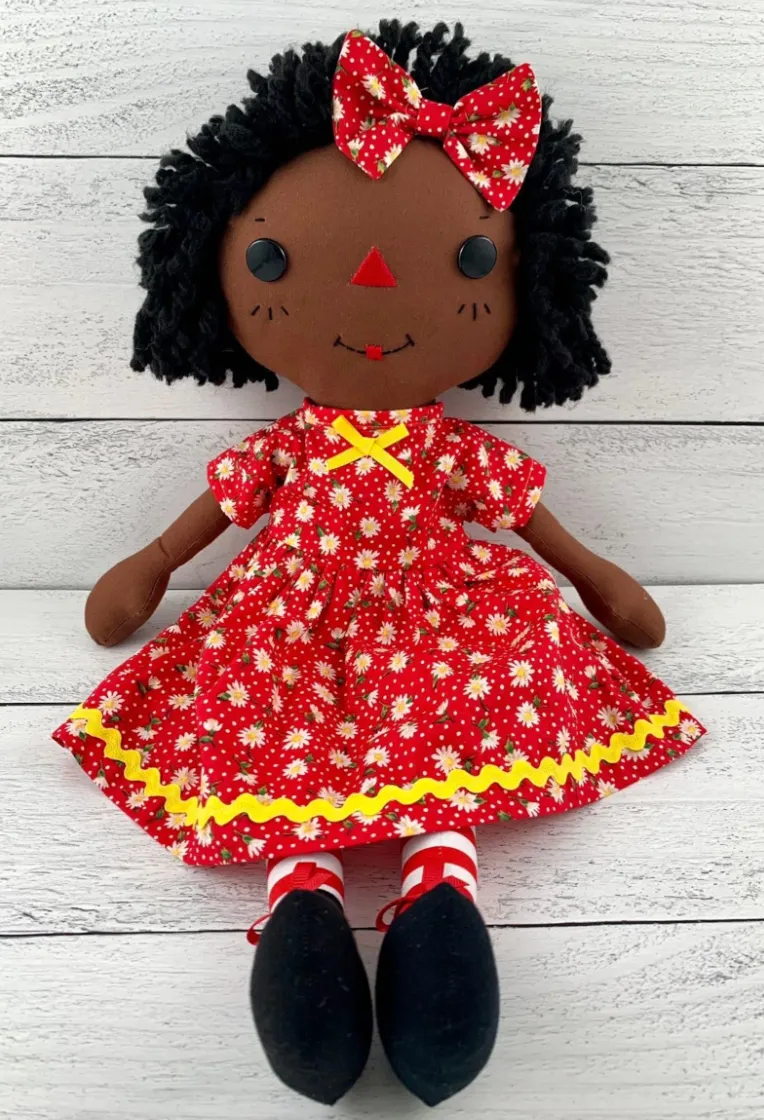
Image via Cinnamon Annie Dolls
These adorable stitched dolls make the perfect playmate — and heirloom — for any young child. The dolls come in various skin tones, with additional wardrobe purchases available for style variation.
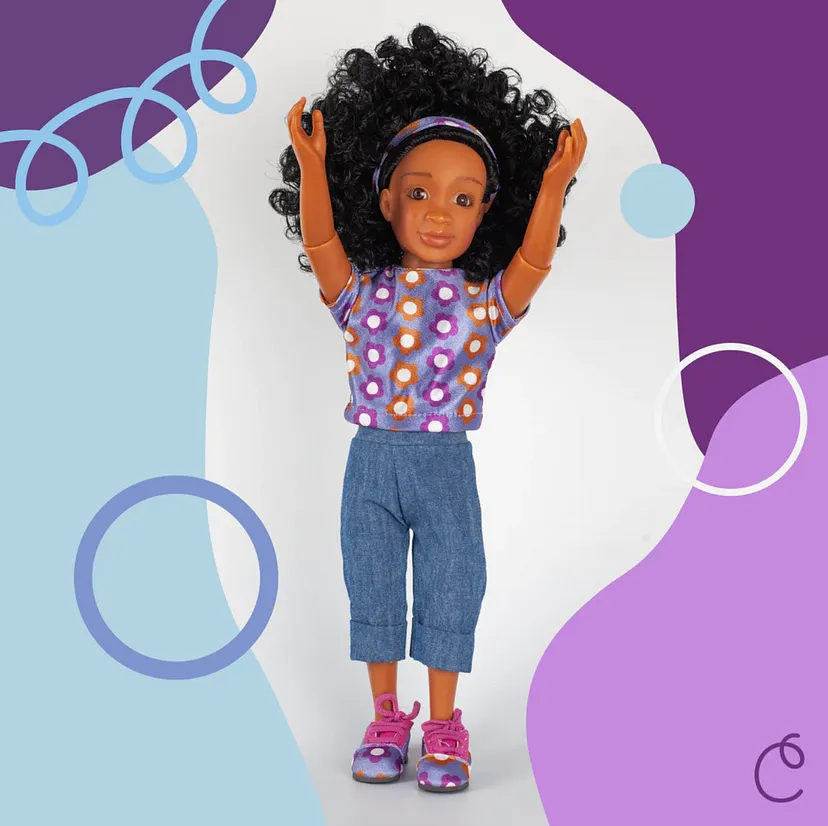
Image via Corage Dolls
Corage Dolls is a budding brand building authenticity and sisterhood in young girls. Their premiere doll, Aaliyah, is a 14" spunky 8-year-old with an entrepreneurial mindset. Corage Dolls also offer a cultivate courage journal, tee-shirts, and swag.
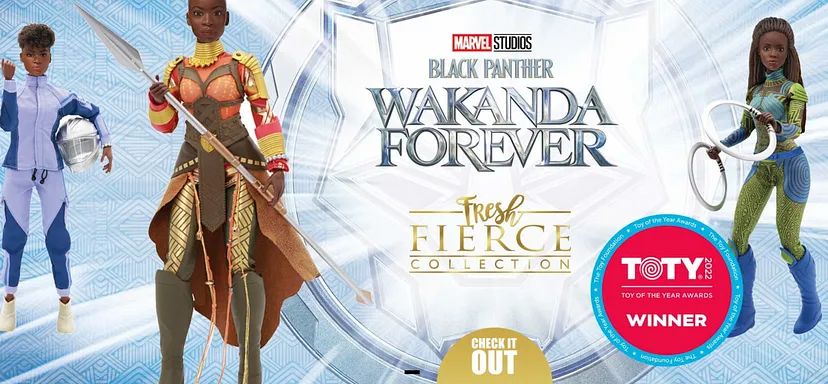
Image via Fresh Dolls
Fresh Dolls is a subsidiary of EPI, a brand that seeks to redefine how Black children see themselves through dolls. Started just a few years after BRATZ in 2008, their line of dolls includes baby dolls up to collectibles and boasts the status of 2022 Toy of the Year award winner for their award-winning Wakanda Forever dolls.
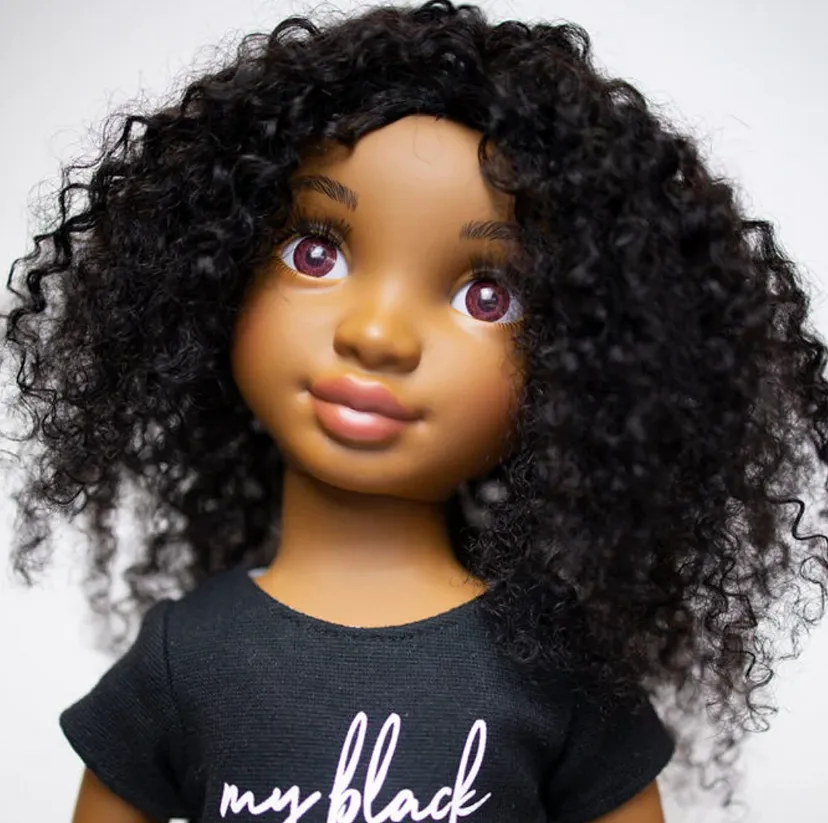
Image via Healthy Roots
These dolls might be some of the most interactive dolls on the market! Children can pick a doll with a shade of melanated skin similar to their own and learn how to embrace their curl power by washing and styling their doll’s hair.
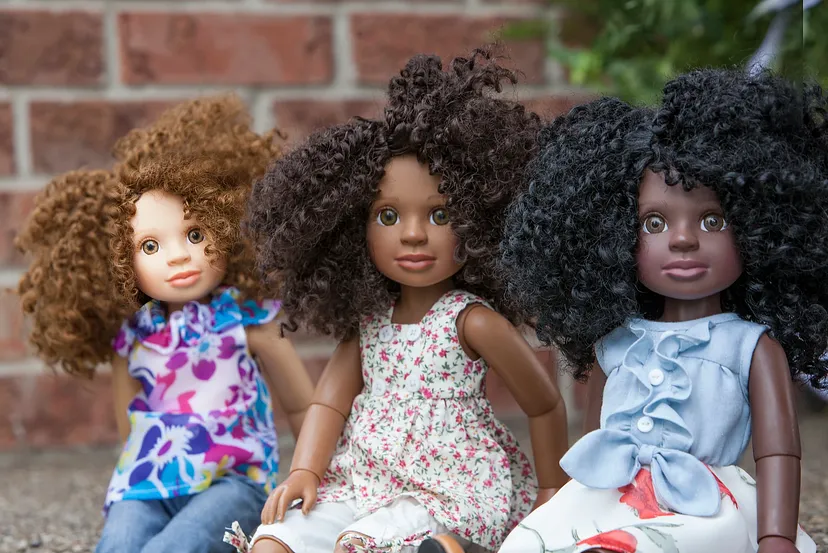
Image via Herstory Dolls
These 18-inch dolls reflect “the diversity within kids of African Descent with different brown skin tones, more true facial features, and textured hair of different types.” The Herstory Dolls website also has activities, stories, and a platform for kids to upload pictures showcasing their dolls.
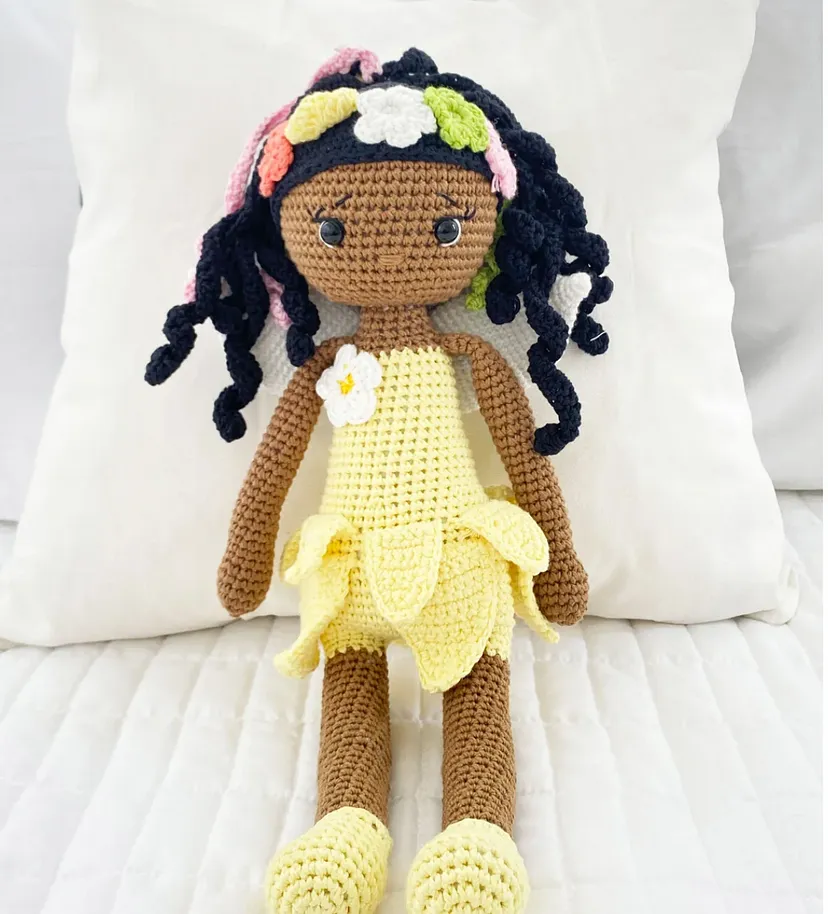
Image via Ikuzi Fairy Dolls
Ikuzi Fairy Dolls was launched by a mother of two daughters with two shades of melanated skin. Dolls types vary from polyester to vinyl, but special attention should be paid to the brand’s charming crocheted fairy dolls.
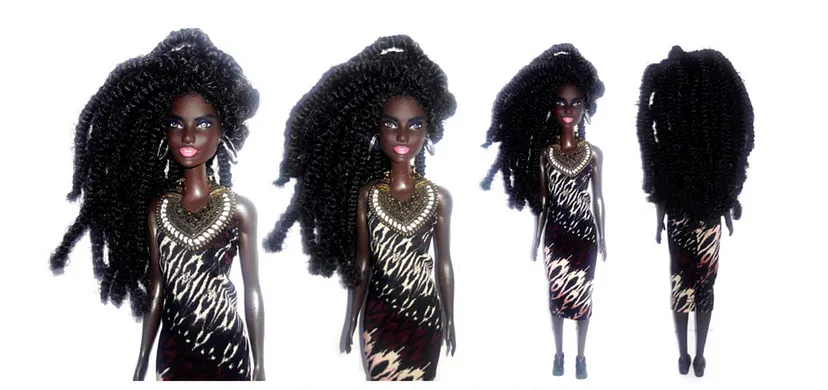
Image via Natural Dolls United
Natural Dolls United finds a unique niche in the doll market, boasting a cornerstone of dolls with beautifully diverse hairstyles. Braids, Afros, mohawks, locs, curls, beads, headwraps, and many more styles are available across a spectrum of melanated skin tones.

